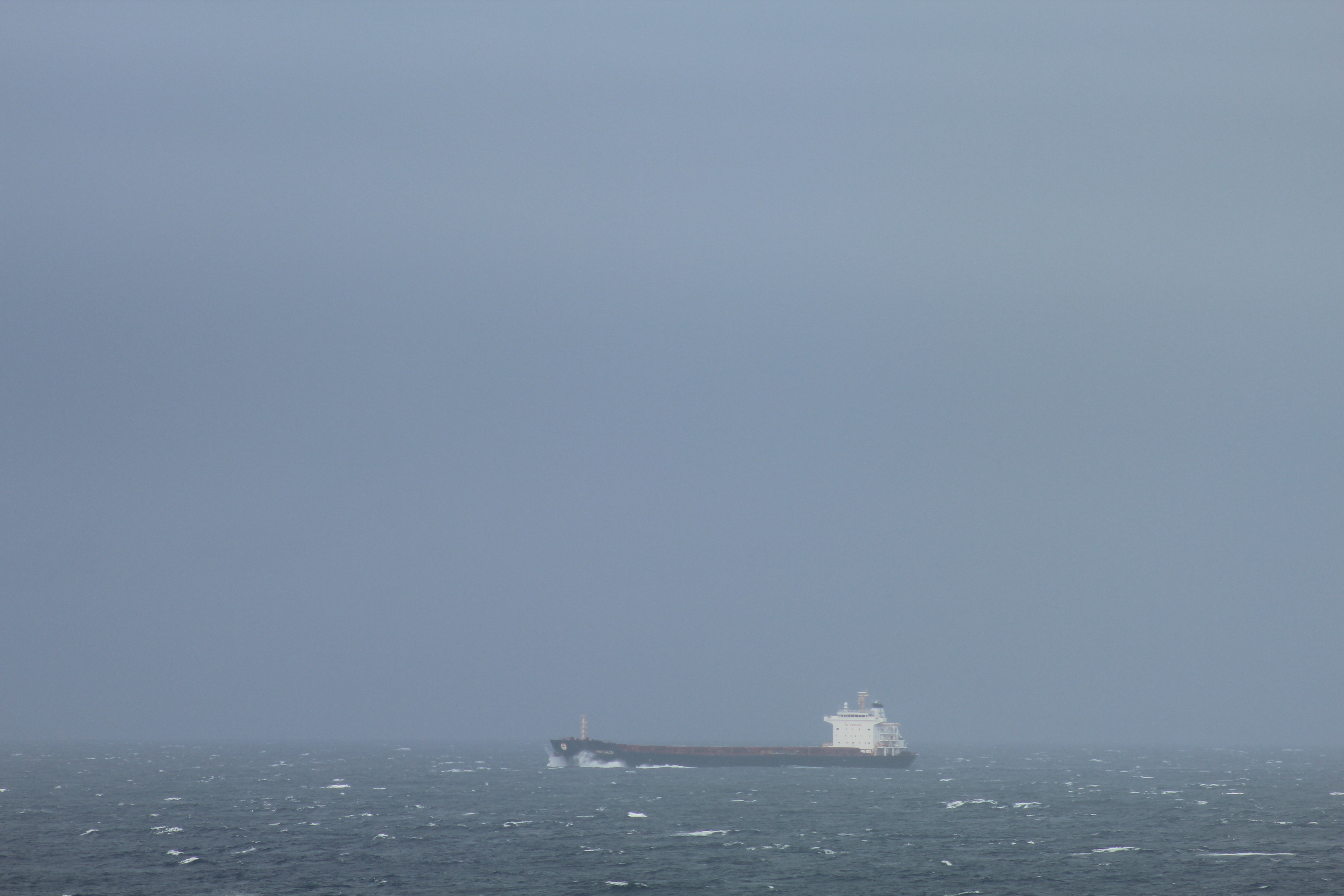Arctic states and IMO member nations must back push to get heavy fuel oil out of Arctic shipping

Last month, U.S. President Barack Obama and Canadian Prime Minister Justin Trudeau, following lengthy consultations by the United States and Canadian governments with the people who live and depend on the Arctic, made important commitments to protect Arctic marine environments. This was a historic moment for the people of the North Bering Sea, where I live, and for people across the Arctic region.
We have been working for decades to protect the Northern Bering Sea. Throughout, and to this day, our arguments are based on the need to protect subsistence and the ancestral and historic linkages of our people to the environment. For thousands of years, our people have taken positive actions to protect the future of the harsh Arctic environment we live in, by using the guidance of elders, and strong community bonds to land and sea.
International cooperation, such as was recently displayed by the U.S. and Canada, is important to the whole of the Arctic. For hundreds of years, national and international polices have shaped the Arctic from whaling to furs, from territorial laws to statehood here in Alaska.
Now, policy must address a dramatically warmer Arctic climate where sea ice is declining — sometimes even in the middle of winter as happened from Dec. 22-25 of 2016.
Arctic sea ice loss is driving an increase in shipping. To improve Arctic shipping rules, the U.S. and Canada have announced a “phase down” of the dirtiest of marine fuels: heavy fuel oil or HFO, from use in vessels operating in the Arctic. This comes after the two governments formally notified the International Maritime Organization in September 2016 that a “heavy fuel oil spill in the Arctic could cause long-term damage to the environment.” The U.S. and Canada are now committed to propose, in time for the next meeting of the IMO’s Marine Environment Protection Committee in July 2017, that work begin towards phasing out HFO.
Heavy fuel oil is a dirty and polluting fossil fuel that powers ships all over the world. HFO poses a problem for the marine environment and climate wherever it’s used, but if it spilled in the cold waters of the Arctic, HFO breaks down even more slowly and will have long term, devastating effects on both livelihoods and ecosystems.
My fellow Yupik and Inupiaq people are the Arctic’s first responders. The risk of a HFO spill is of deep concern, because equipment — however inadequate — to handle such a spill is stationed thousands of miles away from rural Alaska shores. Our common interest is to keep the Arctic as clean as possible. A phase out of HFO will not harm our economies, but it will reduce the risk of a potential HFO spill.
HFO is also the source of harmful and significantly higher emissions of air pollutants, including sulphur oxide, nitrogen oxide, particulate matter, and black carbon. When emitted and deposited on Arctic snow or ice, the climate warming effect of black carbon is at least three times more than when emitted over open ocean.
While attending last October’s meeting of the IMO’s Marine Environment Protection Committee in London, I joined a delegation of Arctic indigenous leaders to discuss with IMO Secretary-General Kitack Lim our concerns about maritime safety and the environmental impact of shipping on Arctic communities. During our conversation, we raised the issue of HFO as well as the need for permanent representation of indigenous communities at the IMO.
On the final day of MEPC, Secretary-General Lim, along with several Arctic nations, stated their concerns regarding heavy fuel oil, and on the need for further consideration of risks it poses. It’s now up to the IMO to take next steps towards ridding the Arctic region of HFO.
Pressure is building. This week, a broad spectrum of people with interests in the Arctic gather in Tromsø, Norway, for the annual Arctic Frontiers conference. Indigenous peoples from across the Arctic, government ministers, and leaders from the shipping, energy and tourism industries will cross paths with scientists, journalists and members of non-governmental organizations. This is where Arctic business gets done.
During Arctic Frontiers, on Wednesday, Jan. 25th, the CEO of Arctic cruise ship operator Hurtigruten, the founder of environmental organization Bellona and the managing director of the European Climate Foundation will co-sign and launch the Arctic Commitment, calling on businesses and organizations in the Arctic and beyond to join them in demanding that the IMO phase out the use of HFO in a timely manner, and urges the shipping industry switch to higher quality, alternative fuels, before the ban is in place.
I come from an area in rural Alaska that is witnessing the transition of the Northern Bering Sea from an ice benthic system to a maritime pelagic system. I am confident that we will adapt to change as our people have for thousands of years. What is less certain is how political forces will impact how we adapt to change.
My fellow indigenous people and I depend on a healthy connection to land and water to continue our ancient livelihoods. The need to get HFO out of Arctic waters as soon as possible is beyond debate. What is required now is the action and impetus. The U.S. and Canada have mounted a challenge — now it’s up to Arctic nations and other IMO member nations to commit to a ban on HFO, for the sake of our polar ocean and the global climate.
Austin Ahmasuk is an Inupiaq from Nome, Alaska, a lifelong hunter, trapper and mariner and serves his people as a tribal and environmental advocate.
The views expressed here are the writer’s and are not necessarily endorsed by Arctic Now, which welcomes a broad range of viewpoints. To submit a piece for consideration, email commentary (at) arcticnow.com.